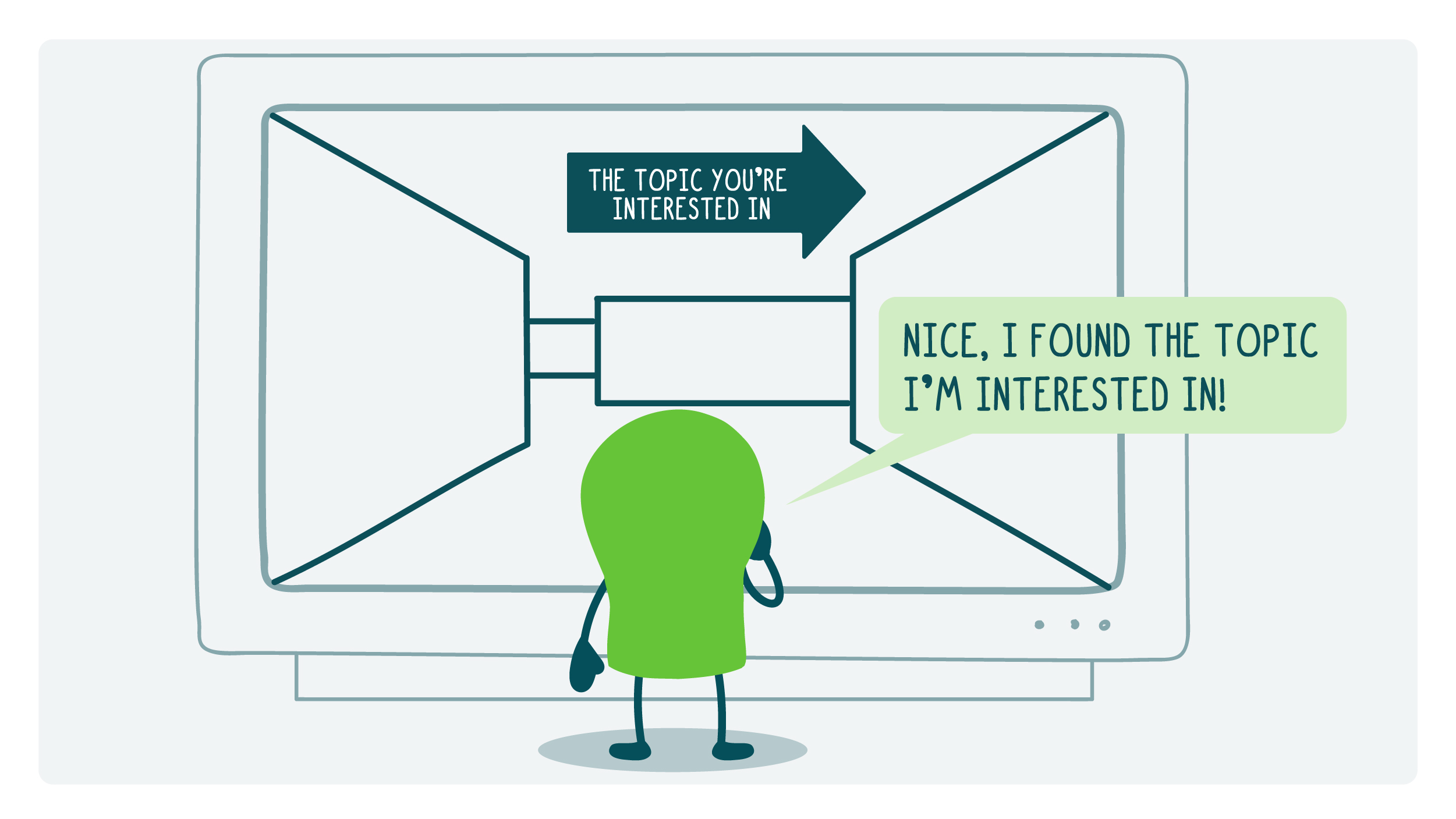
Remember the early days of the internet? People sat down at desktop computers to “surf the web,” patiently waited for webpages to load over a slow dial-up connection, scrolled through endless blocks of text, and asked Jeeves their burning questions (written out as full questions, mind you). Clearly, things are different now — and we have different expectations for online content. If we can’t find what we need right away, we usually move on to the next search result or social media post.
When health communicators write web content, our job is to help people find the health info they need quickly and easily. Fortunately for us, microcontent can help us reach that goal! On a website or app, a piece of microcontent is a short phrase that encourages people to take action. For example, microcontent might direct readers to move onto a new step or check out a more comprehensive resource. Some of the most common types of microcontent are page titles, headings, subject lines, and links.
These little phrases can make a big difference. Think of microcontent like a school crossing guard. If the crossing guard isn’t good at their job, students might get lost or hurt. Similarly, poorly written microcontent can confuse readers or point them in the wrong direction. A good crossing guard, on the other hand, helps kids get to school safely and efficiently. Similarly, quality microcontent guides people through your site — and helps you leaves a good first impression. When people find what they need without a big to-do, they’ll be more likely to visit your site the next time they need health info.
So today we’ve rounded up some quick tips for writing page titles and headings, 2 of the most common types of microcontent. We’ve covered some of them before, and there are some important overlapping topics here. But we’ve been thinking a lot lately about how little bits of content often have very big jobs — and we could all use a refresher. When writing titles and headings:
- Shorter is better. Concise titles and headings help readers quickly scan your content and find what they’re looking for. This also means less clutter on your beautifully designed health content.
- Make sure they make sense out of context. Imagine someone reposts part of your content on social media. Will the title or heading make sense outside of your site? Though the out-of-context title or heading may not tell the whole story, the answer should generally be yes.
- Limit idioms or expressions. These phrases may be eye-catching to some (and your clever wordplay may impress your editor), but their meaning can easily get lost in translation for readers who speak English as a second language or those who tend to think more literally.
- Put strong keywords first. Putting the phrases that people are likely to search for at the beginning of your page title or heading makes it more likely that people will find your webpage using a search engine — you know, SEO and all. But this approach also helps people scan your content more quickly.
- Think back to your communication objective(s). As you write, ask yourself: What do I want my readers to know and do? Of course that’s important to consider at every stage of the content development process, but here’s your explicit suggestion to keep your comm objective top of mind specifically when writing microcontent — that’s the most important info to sum up in your page title and headings.
For more tips to help you polish up your microcontent, check out this article from Nielsen Norman Group.
The bottom line: When it comes to writing for the web, small phrases often have big jobs. Try these tips to improve page titles and headings.
Copy/paste to share on social (and tag us!): When it comes to writing for the web, little phrases can make a big difference. Write more effective page titles and headings with these #microcontent tips from CommunicateHealth: https://communicatehealth.com/wehearthealthliteracy/microcontent-small-phrases-with-big-jobs/ #HealthComm #HealthLiteracy
Browse recent posts